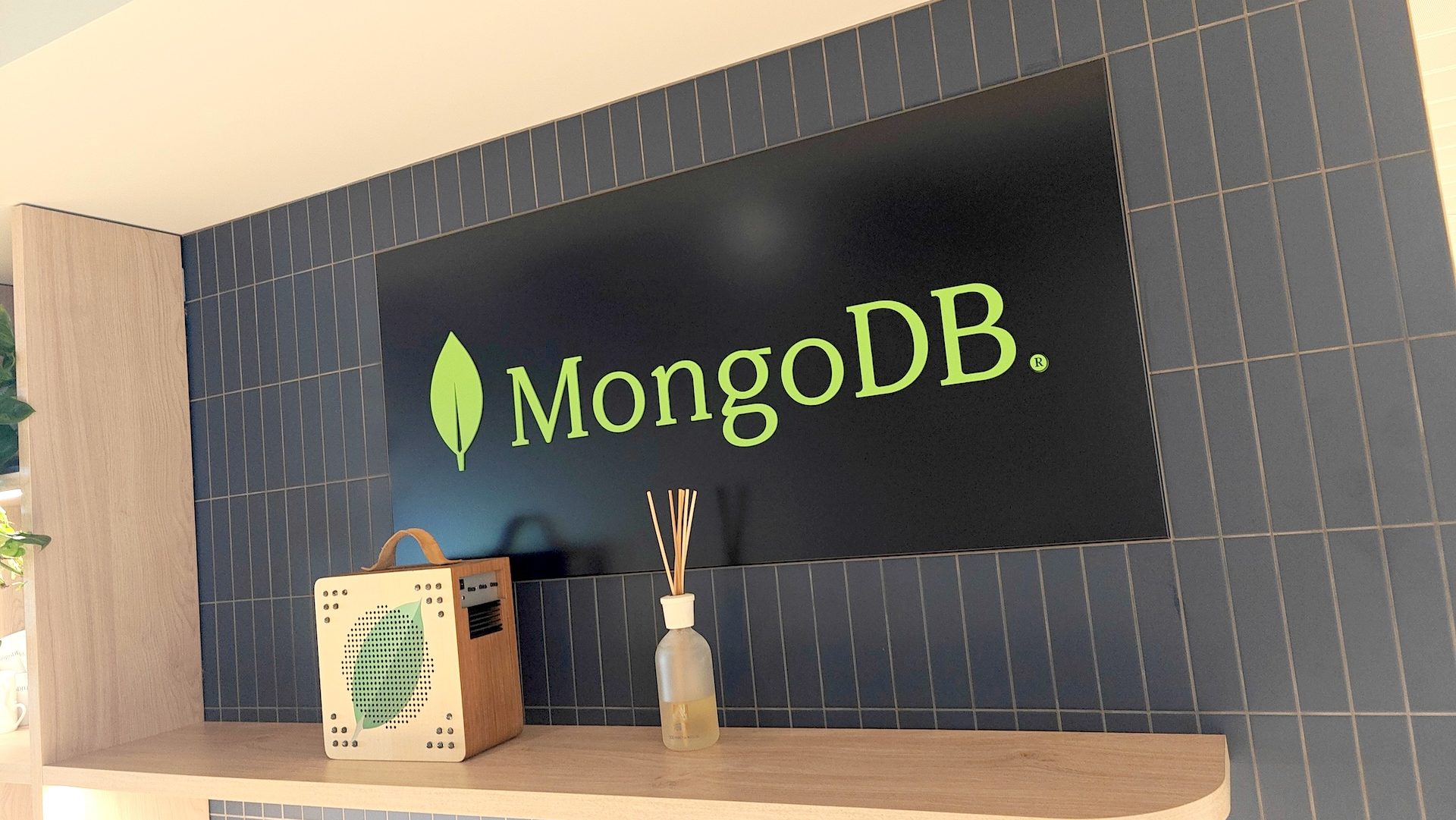A lot has happened since Dev Ittycheria took the reins at MongoDB, the $26 billion database company he’s led as president and CEO since September 2014. Ittycheria has taken MongoDB to the cloud, steered it through an IPO, overseen its transition from open source, launched a venture capital arm, and grown the customer base from a few hundred to something approaching 50,000.
“When I joined the company, it wasn’t clear if people would trust us to be a truly mission-critical technology,” Ittycheria told TechCrunch. “When I joined, it was doing roughly $30 million in revenue; now we’re doing close to $2 billion.”
It hasn’t all been peaches and cream, though. Five months ago, MongoDB was hit by a security breach, which, while relatively contained, did momentarily risk its reputation in an industry where reputation is paramount.
Throw into the mix the whirlwind AI revolution that has engulfed just about every industry, and there was much to discuss when TechCrunch sat down with Ittycheria at MongoDB’s new London office, which opened in Blackfriars last year.

Vector’s embrace
Databases have come a long way since IBM and Oracle first popularized relational databases more than half a century ago. The internet’s rise created demand for flexible, scalable, and cost-effective data storage and processing, paving the way for businesses such as MongoDB to thrive.
Founded in 2007 by a trio of veterans hailing from online adtech company DoubleClick (which Google acquired for $3.1 billion), MongoDB was initially called 10Gen until a rebrand to the name of its flagship product six years later. It has since emerged as one of the preeminent NoSQL databases, helping companies store and manage large volumes of data.
Prior to joining MongoDB, Ittycheria founded and exited a server automation company called BladeLogic for $900 million in 2008, and went on to serve in various board member and investor roles (including a 16-month stint at Greylock) before joining MongoDB as president and CEO coming on for 10 years ago now. Ittycheria replaced Max Schireson, who stepped down for family reasons after just 18 months in the role.
Built on a document-oriented model, MongoDB has grown off the back of the explosion in mobile and web applications where flexible, dynamic data structures are at play. The current artificial intelligence wave is driving a similar shift, with vector databases the hot new thing in town.
Why vector databases are having a moment as the AI hype cycle peaks
Like NoSQL, vector databases also specialize in unstructured data types (e.g., images, videos, social media posts), but are particularly well suited to large language models (LLMs) and generative AI. This is due to the way they store and process data in the form of vector embeddings, which convert data into numerical representations that capture relationships between different data points by storing them spatially by relevance. This makes it easier to retrieve semantically similar data and allows AI to better understand context and semantics within conversations.
While a slew of dedicated vector database startups have emerged these past few years, the incumbents have also started embracing vector, including Elastic, Redis, OpenSearch, Cassandra, and Oracle. Cloud hyperscalers, including Microsoft, Amazon, and Google have also ramped up support for vector search.
MongoDB, for its part, introduced vector search to its flagship database-as-a-service product Atlas last June, a sign that the company was preparing for the oncoming AI tsunami. This mimics other historical trends where single-function databases emerge (such as time-series) with some utility as stand-alone solutions but that might also be better integrated into a larger multi-purpose database stack. This is precisely why MongoDB introduced support for time-series databases a few years back, and why it’s doing the same with vector.
“A lot of these companies are features masking as products,” Ittycheria said of the new wave of dedicated vector products. “We built that into the platform, and that’s the value — rather using some stand-alone vector database and then your OLTP [online transaction processing] database and then your search database, we can combine all three things into one platform that makes the life of a developer and architect so much easier.”
The idea is that database providers that adopt a multipronged approach can combine all the data in one place, making life easier for developers to work with.
“There’s probably like 17 different types of databases, and probably about 300 vendors,” Ittycheria said. “There’s no customer on this planet that wants to have 17 different databases. The complexity that creates, and the cost of learning, supporting and managing those different technologies becomes overwhelming. It also inhibits innovation, because it creates this tax of complexity.”

Too much hype
Despite the preparation, Ittycheria reckons there is too much hype around AI — for now, at least.
“My life has not been transformed by AI,” he said. “Yes, maybe I can write an email better through all those assistants, but it’s not fundamentally transformed my life. Whereas the internet has completely transformed my life.”
The theory is that despite the hullaballoo, it will take time for AI to seep into our everyday lives — and when it does, it will be through applications integrating AI, and businesses building on it.
“I think with the adoption of any new technology, we see value accrue at the bottom layer first,” Ittycheria said. “Obviously, Nvidia is making money hand over fist, and OpenAI has been the most talked about company since they launched ChatGPT. But the real value will come when people build applications on top of those technologies. And that’s the business we’re in — we’re in the business of helping people build applications.”
For now, it’s all about “simple apps,” as Ittycheria puts it. This includes chatbots for customer service, something that MongoDB itself is doing internally with CoachGTM, powered by MongoDB’s vector search, to bring its sales and customer teams instant knowledge about their products. In some ways, we’re currently in the “calculator apps” stage that the iPhone found itself in nearly 20 years ago when the concept of the App Store hit the masses.
“The real sophisticated [AI] apps will be using real-time data, being able to make real-time decisions on real-time events,” Ittycheria said. “Maybe something’s happening in the stock market, maybe it’s time to buy or sell, or it’s time to hedge. I think that’s where we will start seeing much more sophisticated apps, where you can embed real-time data along with all the reasoning.”
The SaaS path
One of the biggest developments during Ittycheria’s tenure has been the transition from a self-deployed model, where customers host MongoDB themselves and the company sells them features and services. With the launch of Atlas in 2016, MongoDB embarked on the familiar SaaS path where companies charge for removing all the complexities of self-hosting. At the time of its IPO the following year, Atlas represented 2% of MongoDB’s revenue — today that figure sits at nearly 70%.
“It’s grown very quickly, and we’ve really built that business as a public company,” Ittycheria said. “What the popularity of Atlas showed was that people are comfortable consuming infrastructure as a service. What that allows them to do is delegate what they consider ‘non-strategic functions,’ like provisioning, configuring and managing MongoDB. So they can focus on building applications that are really transforming their business.”
Another major development came when, a year after going public, MongoDB moved away from an open source AGPL license to a source-available SSPL (server side public license). In some ways, this was the bellwether of what was to come, with countless infrastructure companies going on to abandon their open source credentials to prevent the cloud giants (e.g., Amazon) from selling their own version of the service without giving back.
“We feel very happy about it [the license change],” Ittycheria said. “The reality is that while it was open source, 99.9% of the development is done by our own people — it’s not like communities contributing code. It’s not some simple, trivial application — it’s very complex code, and we need to hire senior, talented people who cost a lot of money. We didn’t think it was fair for us to spend all this money to build this product, then someone takes that free product, monetizes it, and not give us anything back. It was quite controversial in 2018, but looking back, our business has only grown faster.”
The eternal struggle between open source and proprietary software
And grown it has. As with just about every tech company, MongoDB’s valuation soared during the pandemic, peaking at an all-time high of $39 billion in late 2021, before plummeting south of $10 billion within a year — roughly the same as its pre-pandemic figure.
However, MongoDB’s shares have been in ascendency in the 18 months since, hitting $35 billion just a couple of months ago, before dropping again to around $26 billion today — such is the volatile nature of the stock markets. But given the company’s relatively modest $1.8 billion valuation at the end of its first day of trading in 2017, MongoDB has performed fairly well for public market investors.

Four months ago, though, MongoDB revealed a data breach that exposed “some customer account metadata and contact information” — it involved a phishing attack through a third-party enterprise tool (Ittycheria wouldn’t confirm which). This caused its shares to drop 3%, but in the months that followed, MongoDB’s valuation surged back to a two-year high. This highlighted how little impact the breach had on affairs at the company, certainly compared to high-profile data breaches at the likes of Equifax and Target, which hit the businesses hard and forced senior executive departures.
While MongoDB’s cybersecurity incident was significantly smaller in scope, what stood out was how quickly the whole thing went away — it was reported in several outlets (including TechCrunch), but the story disappeared into the foggy ruins of time just as quickly as it arrived.
“Part of the reason is that we were very transparent,” Ittycheria said. “The last thing you want to do is hide information and appear like you’re misrepresenting information. We have lots of banks who put a lot of very sensitive information in our data platform; we’ve lots of other companies that have a lot of sensitive information. So for us, it’s really about making sure that our architecture is robust and sound. And this really forced us to double down. I would never claim that we’re never gonna get hacked again, but we’re doing everything in our power to ensure that it doesn’t.”
Nothing ventured
It’s not unusual for the biggest tech companies to launch their own investment vehicles, as we’ve seen through the years with Alphabet (which has several investment offshoots), Microsoft, Amazon, and Salesforce all ingratiating themselves with the startup fraternity. But a newer wave of enterprise corporate venture firms have entered the fray, too, including Slack, Workday, Twilio, Zoom, HubSpot, and Okta.
In 2022, it was MongoDB’s turn to launch such a fund, and in the two years since, MongoDB Ventures has invested in some eight companies.
“This is for us to build deeper relationships — we work in an ecosystem that consists of large companies and also small companies,” Ittycheria said. “Where we see a small company that we think could be interesting to work with, we say, ‘Hey, we want a chance to invest in you,’ so that extra value’s created. We also are the beneficiaries of creating some of that value.”
MongoDB only has a handful of people in its corporate development team that are mostly focused on the venture fund, and Ittycheria stresses that MongoDB takes a back seat with its investments. It also typically invests alongside other VCs, as it did with its inaugural investment in 2021 (predating the formal launch of its fund), when it quietly joined the likes of Insight Partners and Andreessen Horowitz in Apollo GraphQL’s $130 million Series D round.
“We always take a minority position, we don’t take a board seat, and we don’t set the terms,” Ittycheria said. “But the reason startups are interested in us is because they want to leverage the MongoDB brand. We have thousands of people in the field, so they [startups] can leverage our distribution channels.”






























Comment